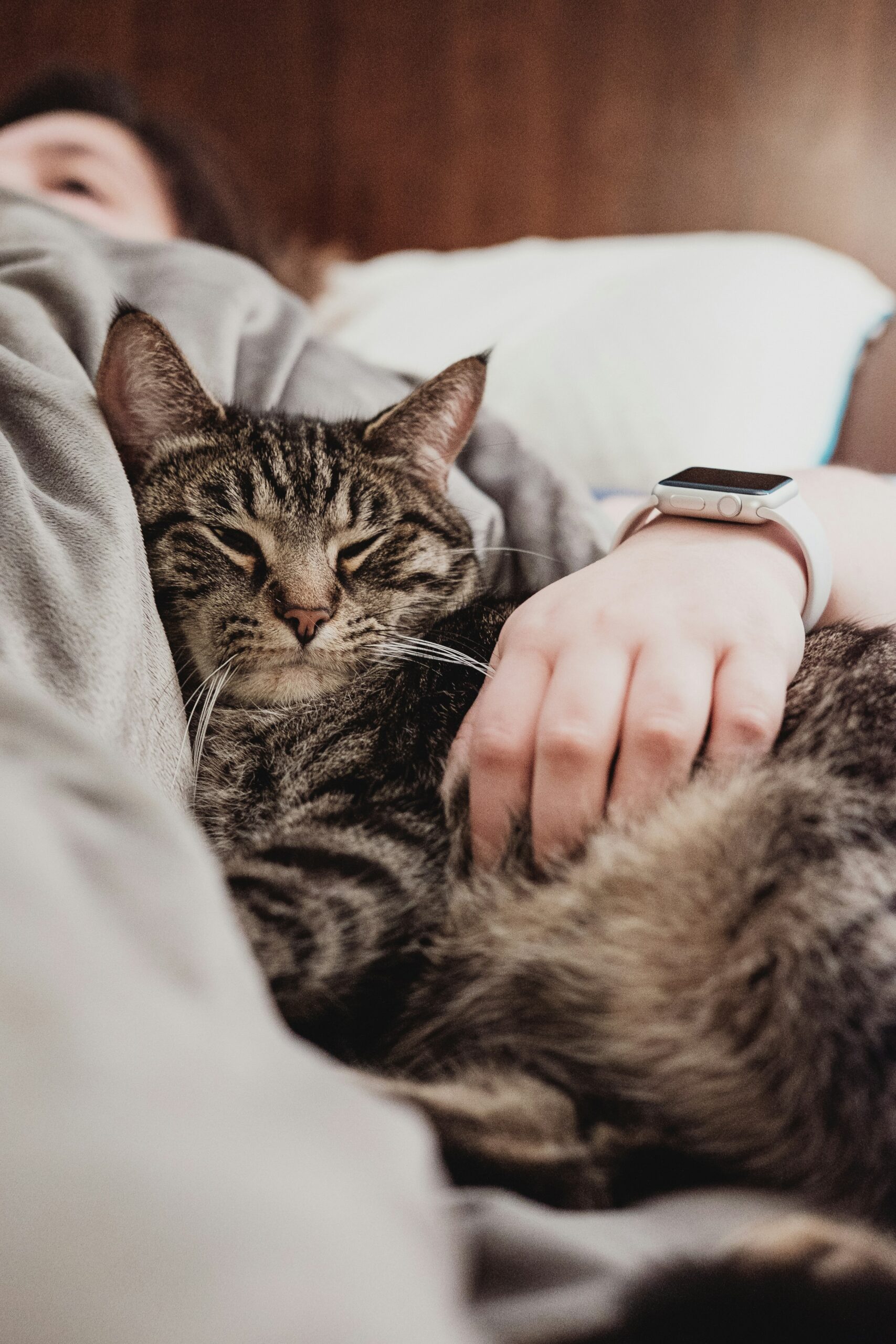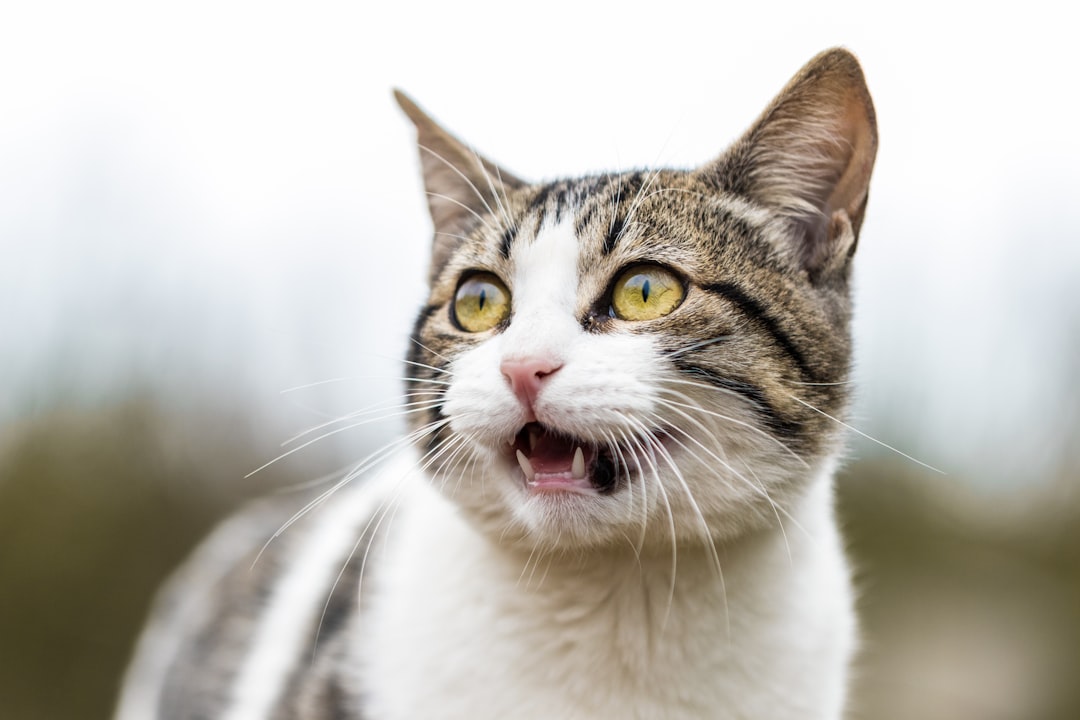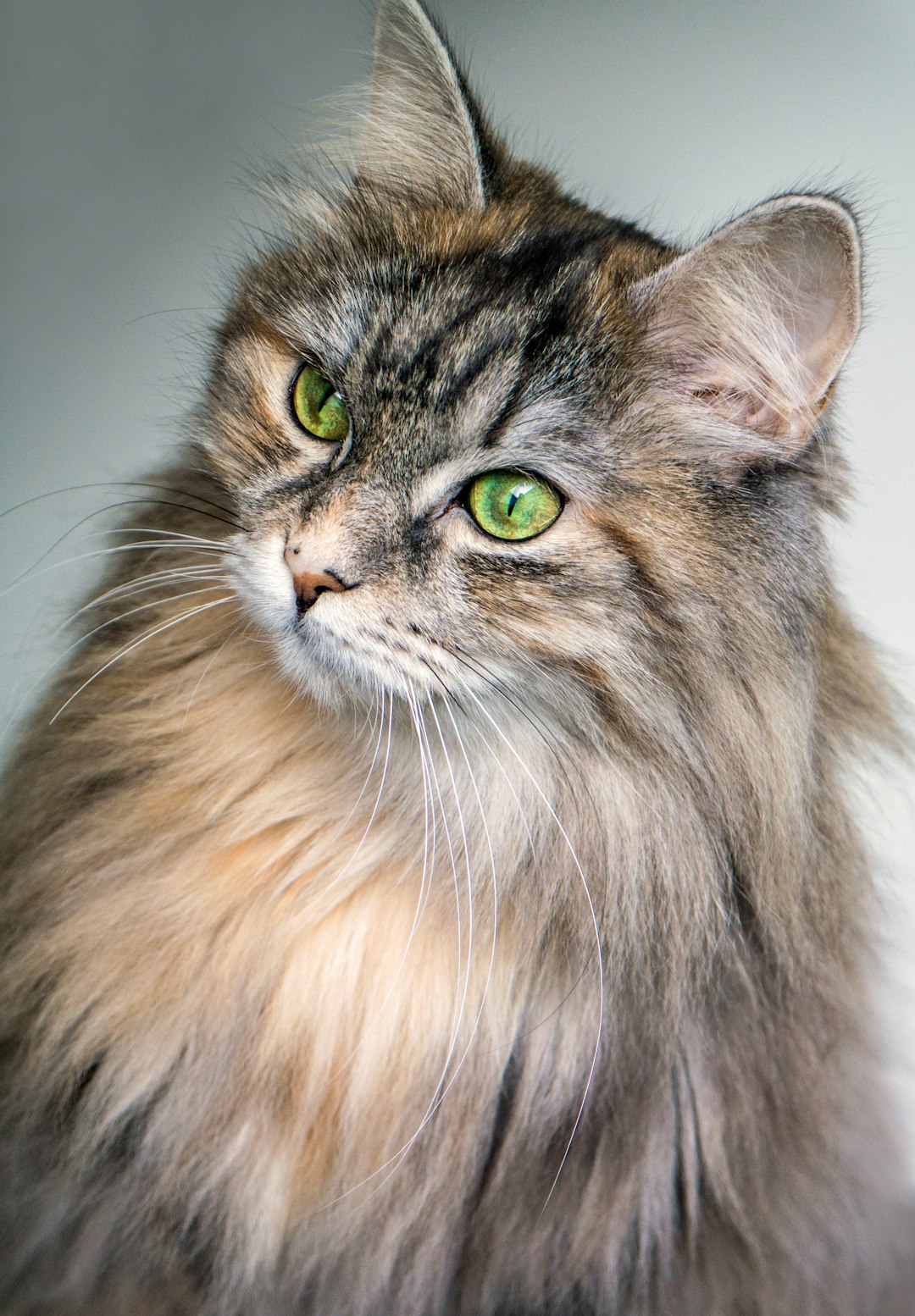When it comes to keeping our furry friends safe, understanding the effects of various plants is crucial. Many pet owners wonder, "Are orchids poisonous to cats?" Thankfully, most orchid species are non-toxic to cats, making them a popular choice for pet-friendly homes. However, it’s still important to monitor what your cat consumes, as ingestion could lead to mild gastrointestinal upset. Moreover, if you’re curious whether cats can eat turkey, you should be aware that certain human foods can pose risks, just like some plants. This guide will help you navigate the safety of orchids and other common household items for your feline companions.
Understanding Orchids and Their Safety for Cats
When it comes to orchids and their safety for cats, it’s essential to know the facts. Generally, orchids are considered non-toxic to cats. However, certain factors play a vital role in your feline’s health:
- Orchid Varieties: While most orchids are safe, a few lesser-known species might cause mild gastrointestinal upset if ingested.
- Symptoms to Watch For: If your cat nibbles on an orchid, look for signs like vomiting or diarrhea. These symptoms are usually mild, especially compared to other plants.
- Individual Reactions: Each cat’s reaction to plants can vary. Therefore, even non-toxic plants can lead to distress in sensitive individuals.
In addition to understanding plant safety, consider your cat’s diet. For instance, though cats are obligate carnivores, some may exhibit curious behaviors, including nibbling on plants. It’s interesting to note how cats interact with different foods, reminiscent of how they might react to “an cats eat turkey.” Thus, while orchids pose minimal risk, always maintain a close watch on your cat’s interactions with plants. By doing so, you ensure their safety while enjoying the beauty of orchids in your home.
Common Orchid Varieties and Their Effects
Orchids are stunning plants enjoyed by many, but not all varieties are safe for feline companions. It’s crucial to be aware of which orchids could pose risks to your pets. Here are some common orchid types and their effects on cats:
Phalaenopsis (Moth Orchid)
- Generally non-toxic to cats.
- Safe for households with pets.
Dendrobium
- Non-toxic; poses no real threat.
- Vibrant colors attract attention but no harm to cats.
Cattleya
- Known for beautiful blooms.
- Non-toxic, but ingestion might cause mild gastrointestinal upset.
Oncidium
- Also non-toxic to cats.
- Safe to keep around playful pets.
Summary of Effects:
| Orchid Variety | Toxicity Level | Notes |
|---|---|---|
| Phalaenopsis | Non-toxic | Safe for cats |
| Dendrobium | Non-toxic | Safe for cats |
| Cattleya | Non-toxic | Mild upset possible if ingested |
| Oncidium | Non-toxic | Safe for cats |
While orchids may seem enticing, an cats eat turkey leaves a lingering question: Are there safer plant alternatives? Always opt for pet-friendly flora to ensure a healthy environment for your feline friends.
Signs of Orchid Poisoning in Cats
It’s essential to recognize the signs of orchid poisoning in cats, even if orchids are generally considered non-toxic. If your feline friend accidentally ingests any part of an orchid, be alert for the following symptoms:
- Vomiting: Frequent vomiting may indicate that your cat is reacting adversely to the plant.
- Diarrhea: Loose stools can occur as a response to ingestion.
- Lethargy: If your cat appears unusually tired or unresponsive, it could signal distress.
- Loss of Appetite: Cats may refuse to eat or show disinterest in food.
- Abdominal Pain: Watch for signs of discomfort, such as whining or excessive grooming.
While the likelihood of poisoning from orchids is low, it’s better to be cautious. If you suspect your cat has consumed orchids, consult a veterinarian immediately. Remember, just like you monitor what your pet eats—after all, an cats eat turkey and it should be safe and healthy for them! Keeping a watchful eye on your pet’s behavior post-ingestion is crucial for their well-being.
What to Do If Your Cat Ingests Orchid Parts
If you suspect your cat has ingested parts of an orchid, swift action is vital to ensure their safety. Here’s a clear step-by-step guide on how to respond effectively:
Stay Calm: Your demeanor influences your cat’s stress level, so remain composed.
Assess Symptoms: Watch for signs of distress such as:
- Vomiting
- Diarrhea
- Lethargy
- Loss of appetite
Contact Your Veterinarian: If your cat displays any of these symptoms or if ingestion is confirmed, reach out to your vet immediately. In some cases, your vet may suggest inducing vomiting or bringing your cat in for an examination.
Follow Vet Instructions: Adhere strictly to the advice provided by your veterinarian regarding further treatment or monitoring your cat’s condition.
Prevent Future Incidents: After addressing the situation, consider removing any orchids or potentially harmful plants from your home.
Understanding how to manage instances when an cats eat turkey or any non-food items is crucial for maintaining your cat’s health. By staying vigilant and prepared, you can mitigate risks and keep your feline companion safe.
Preventing Orchid-Related Incidents
To keep your feline friends safe, proactively preventing orchid-related incidents is essential. Consider the following strategies:
- Placement: Position orchids out of reach. High shelves or hanging baskets deter curious cats.
- Alternatives: Opt for non-toxic plants. If you suspect that an cats eat turkey, providing safe alternatives can prevent unwanted nibbling.
- Training: Reinforce boundaries. Use positive reinforcement techniques to discourage your cat from exploring your orchid collection.
- Distractions: Provide engaging toys. By offering cats stimulating alternatives, you reduce their curiosity about your plants.
Quick Comparison: Safe vs. Unsafe Plants
| Plant Type | Safe for Cats | Unsafe for Cats |
|---|---|---|
| Orchids | No | Yes |
| Spider Plant | Yes | – |
| Pothos | No | Yes |
| Catnip | Yes | – |
In view of these measures, you minimize the risk of incidents while preserving your orchids. Remember, keeping your pets away from potentially harmful plants is key to ensuring their safety, especially if they exhibit a penchant for nibbling—just like when an cats eat turkey!
Alternative Plants That Are Safe for Cats
When it comes to choosing plants for your home, safety for your furry friends is crucial. If you’re concerned about orchids and their effects on cats, consider these alternative plants that are safe for feline companions:
Spider Plant: This resilient plant not only thrives indoors but also acts as a natural air purifier. Cats love to nibble on its leaves without any adverse effects.
Boston Fern: A lush, leafy option, Boston ferns are non-toxic to cats and add a touch of greenery to any space.
Areca Palm: This palm is popular for its elegant appearance and is completely safe for cats. Plus, it can help improve indoor air quality.
Catnip: A favorite among felines, catnip is safe and offers stimulating properties for playful interactions.
Incorporating these plants ensures your home remains a safe haven. Remember, when curious about what an cats eat turkey, also be mindful of what plants they might explore. Keeping both your plants and pets safe leads to a happier environment in your household!
Exploring the Myths About Orchids and Pets
When it comes to orchids and cats, myths often lead to confusion. It’s crucial to separate fact from fiction for your furry friend’s safety. Here are a few common misconceptions:
Myth 1: All orchids are harmful to cats.
In reality, most orchid species are harmless. For instance, Phalaenopsis orchids typically pose no danger.Myth 2: Eating orchid leaves makes cats sick.
While ingestion of any plant material can cause mild stomach upset, orchids generally do not contain toxins that harm cats.Myth 3: Cats are naturally inclined to avoid dangerous plants.
Though cats are cautious eaters, they may nibble on plants out of curiosity.
Despite these myths, if your cat ingests an unknown plant, monitor them closely. In an emergency, seek veterinary assistance immediately.
Remember, just like when thinking about whether an cats eat turkey, clarifying facts around orchids helps ensure your pet’s well-being. Always prioritize safe plant options to keep your home healthy for your feline friends.
Expert Opinions on Orchids and Feline Safety
When it comes to the safety of cats and orchids, expert opinions generally agree that orchids are non-toxic to felines. Various veterinarians and pet safety organizations have conducted studies, leading to some key insights:
- Non-Toxicity: Most orchid varieties, including Phalaenopsis and Dendrobium, pose little to no harm if accidentally ingested by cats.
- Behavioral Insights: Cats, being curious creatures, may nibble on plants. However, they tend to be more attracted to grass or catnip than to orchids.
- Digestive Considerations: Although ingestion of orchid parts is unlikely to cause toxicity, it may lead to mild digestive upset. Therefore, it’s essential to monitor your pet’s behavior after potential ingestion.
In conclusion, while you’re determining what an cats eat turkey, rest assured that orchids shouldn’t be a source of concern. Keeping a few orchid plants in your home can add beauty without jeopardizing your cat’s health. Always consult your veterinarian if you have any concerns about your cat’s interactions with plants.
Resources for Further Information
To deepen your understanding of orchids and their safety concerning cats, consider exploring the following resources:
Veterinary Journals: Many veterinary publications provide research and insights on pet safety in relation to houseplants. Look for articles specifically on orchids.
Animal Poison Control Centers: Websites such as ASPCA or Pet Poison Helpline offer reliable information on toxic and non-toxic plants, including common orchids.
Books on Pet Care and Toxic Plants: Seek out titles that focus on household plants’ effects on pets. These often include sections dedicated to orchids and other commonly owned plants.
Local Botanical Gardens or Nurseries: Experts at these locations can answer any specific queries regarding the safety of orchids around cats.
Online Forums and Communities: Websites like Reddit may have active discussion threads focusing on pet owners’ experiences with orchids and cats, providing anecdotal insights.
By utilizing these resources, you can ensure your feline friend stays safe while enjoying the beauty of orchids in your home. Remember, always prioritize your cat’s health by being informed, just as you would when deciding if cats eat turkey safely.
Conclusion: Summary of Key Points on Orchids and Cats
In summary, it’s important to address the misconceptions surrounding orchids and their safety for our feline friends. Here’s a quick recap of essential points regarding orchids and cats:
Non-Toxic Nature: Most orchid species, including Phalaenopsis and Cattleya, are considered non-toxic to cats. This means if your curious cat decides to nibble on an orchid, it’s unlikely to face harmful effects.
Signs of Poisoning: Always watch for symptoms such as vomiting, diarrhea, or lethargy. If you notice these signs after your cat has interacted with an orchid, consider contacting your veterinarian.
Prevention: Keep orchids out of reach to prevent any potential mishaps. Even safe plants can lead to digestive issues if ingested in large amounts.
Alternatives: If you’re concerned about your cat’s safety, consider cat-friendly plants like catnip or spider plants.
Understanding that most orchids pose no risk allows for a harmonious home where you can enjoy beautiful blooms while keeping your feline safe. Remember, while your cats often enjoy snacks like turkey, it’s crucial to know which plants are safe for them.
Frequently Asked Questions
Are all types of orchids safe for cats?
While most orchids are generally considered non-toxic to cats, it’s essential to note that there are numerous species of orchids, and not all may be entirely safe. Generally, the common types of orchids like Phalaenopsis, Cymbidium, and Dendrobium are deemed safe for feline companions. However, if you suspect your cat has ingested any part of an orchid, it is recommended to consult a veterinarian promptly to ensure their safety and address any possible symptoms.
What symptoms should I look for if my cat eats an orchid?
If your cat consumes any part of an orchid, keep an eye out for symptoms such as vomiting, diarrhea, or difficulty breathing. Although most orchids are non-toxic, some cats may still have a mild gastrointestinal reaction. Other signs of distress include lethargy, drooling, or changes in behavior. If you notice any of these symptoms, it is crucial to seek veterinary assistance as soon as possible to avoid complications and ensure your pet’s well-being.
Can I keep orchids in my home if I have cats?
Yes, you can keep orchids in your home if you have cats, particularly when opting for those recognized as non-toxic such as Phalaenopsis or Dendrobium. However, to further ensure your cat’s safety, place the orchids out of reach or in areas where your cat cannot easily access them. Additionally, monitor your cat’s behavior around the plants, as curious cats may still attempt to nibble on them. Creating a safe environment is key to enjoying your beautiful orchids.
How can I create a cat-safe environment with orchids?
To maintain a cat-safe environment with orchids, consider placement and accessibility. Position your orchids on high shelves or hanging planters where your cats cannot reach them, preventing any chewing or ingestion. You can also provide alternatives like cat grass or catnip toys, which can satisfy your feline’s desire to chew on plants. Regularly inspect your cat’s behavior around the plants and ensure they don’t express any interest, adjusting your setups accordingly.



